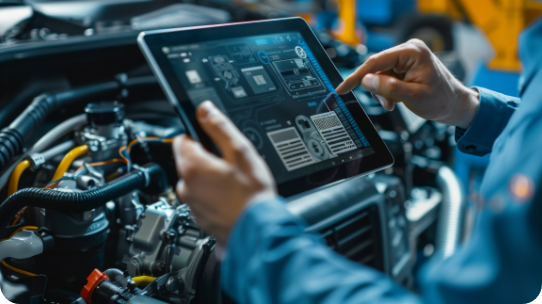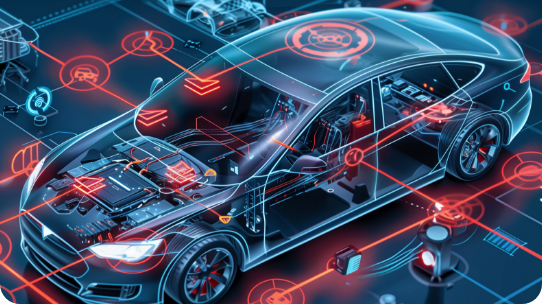Targeted Jobs {{jobCount}}
Industry
Number of jobs {{this.jobCount}}
Select other criteria as well
Clear Selection
Function
- Executive Management
- Aftersales
- Sales
- Dealer Development
- Marketing
- Consulting
- Mechanical
- Electronics
- Semiconductor
- IT
- Chemical
- Supply Chain Management
- General Accounting
- HR, GA & Facilities
- In-House Counsel, Legal Affairs
- Financial Services
- Other
Number of jobs {{ this.jobCount }}
Select other criteria as well
Clear Selection
Location
- Hokkaido / Tohoku
- Kanto
- Joshinetsu/Hokuriku
- Tokai
- Kansai
- Chugoku
- Shikoku
- Kyushu/Okinawa
- Overseas
Number of jobs {{this.jobCount}}
Select other criteria as well
Clear Selection
Featured
Jobs
Search by Industry
Career
Consulting
Specialized Job Search Support in the Automotive, Mobility, and Semiconductor Industries
Turnpoint Consulting is a recruitment agency dedicated to the automotive, mobility, and semiconductor sectors. Our experienced consultants possess deep industry knowledge and are committed to helping you unlock your full career potential.
-
Trusted by
0
+ Candidates
-
Higher Salary
0
%
-
Customer Satisfaction
0
%
Our Consultants
Consultant Introduction
Our consultants make it a priority to thoroughly understand each client company by conducting on-site visits and participating in corporate briefings. Through in-depth discussions and sharp, insightful questions, they gather information from multiple perspectives. Leveraging a broad professional network, they provide personalized job introductions tailored to each individual’s career goals and preferences.
-
Supplier Technology Team (ST)
Rory Harrison
Team Leader/Consultant
He is responsible for technology areas in the automotive and mobility industry (e.g., automated driving, ADAS, software-related and simulation, etc.).
-
-
Supplier Technology Team (ST)
Ai Hozumi
Consultant
I handle a wide range of roles, including engineering, sales, marketing, and business planning, for Japanese MaaS companies, mobility service providers, and logistics DX companies.
-
-
Supplier Technology Team (ST)
Mizuha Kirino
Consultant
We are in charge of supplier companies and can introduce both Japanese and foreign companies. We handle a wide range of jobs, including sales, general back office, and software engineering positions.
-
Consultation
Our expert team is dedicated to empowering your career change, crafting tailored career plans, and securing the best job opportunities in the automotive and mobility sectors.
Candidate's voice
Turnpoint Media
-
Job Change x Trend News] Can’t Take My Eyes Off of You! Summary of the latest EV situation
Here you will find trending news topics in the automotive and mobility markets around the world. We carefully select interesting news in the automotive industry, both domestic and international, and translate and summarize the contents for your reference. We hope you will find it useful in catching up with the latest news in the industry. […]
-
Gigacast is the key to EV manufacturing! Summary of companies introducing Gigacast
Here you will find trending news topics in the automotive and mobility markets around the world. We carefully select interesting news in the automotive industry, both domestic and international, and translate and summarize the contents for your reference. We hope you will find it useful in catching up with the latest news in the industry. […]
-
Job Change x Trend News] By Manufacturer! Summary of the latest situation of self-driving cabs
Here you will find trending news topics in the automotive and mobility markets around the world. We carefully select interesting news in the automotive industry, both domestic and international, and translate and summarize the contents for your reference. We hope you will find it useful in catching up with the latest news in the industry. […]
-
Trend News] Increased Competition for the Latest Technology? Summary of Recent Developments in the Chinese Automotive Market
Here you will find trending news topics in the automotive and mobility markets around the world. We carefully select interesting news in the automotive industry, both domestic and international, and translate and summarize the contents for your reference. We hope you will find it useful in catching up with the latest news in the industry. […]
-
Changing Jobs in the U.S.|A Beginner’s Guide to Making Your First Overseas Career Change
What are the two routes to start a career in the U.S.? There are two ways to start a career in the U.S. 1) Targeting through local hiring: Apply to companies recruiting in the U.S. 2) Targeting expatriate positions: Focus your job search on domestic companies with operations in the U.S. and move to the […]
Frequently Asked Questions
-
What career support does Turnpoint Consulting provide?
Turnpoint Consulting goes beyond simple job introductions. We deliver comprehensive support, including:
・Continuous support even after you receive a job offer.
・Detailed information on job market trends and active recruiting companies.
・Expert review and enhancement of your application materials.
・Thorough preparation assistance for interviews and selection procedures.
-
What types of positions does Turnpoint Consulting specialize in?
We focus on the automotive and mobility sectors, offering opportunities across a wide spectrum of roles, including management, sales and marketing, engineering, supply chain management, and administration.
-
Is your service free of charge?
Yes. Our entire service—from registration through to interviews and job placement—is completely free for candidates.
-
I’m not planning to change jobs immediately – can I still reach out just to gather information?
Absolutely. We welcome inquiries at any time. After registration, we’ll arrange an interview at your convenience to discuss your career interests and provide relevant guidance.
-
If I apply for a job listed on your site, does the application go directly to the company?
This is not a direct application to the listed companies. After registering, you will have an interview with one of our consultants, who will introduce you to jobs at the listed companies if available. We can also introduce you to other jobs that match your requirements.
-
How can I register for job search support in both Japan and the U.S.?
- To register solely for our U.S. recruitment support, please visit:
https://turnpoint-consulting.com/usa-home/#register - To register for both Japan and U.S. services, please complete the registration forms at:
https://turnpoint-consulting.com/registration/
- To register solely for our U.S. recruitment support, please visit:
Search by Job Type
Search by Location
Consultation
Our expert team is dedicated to empowering your career change, crafting tailored career plans, and securing the best job opportunities in the automotive and mobility sectors.














